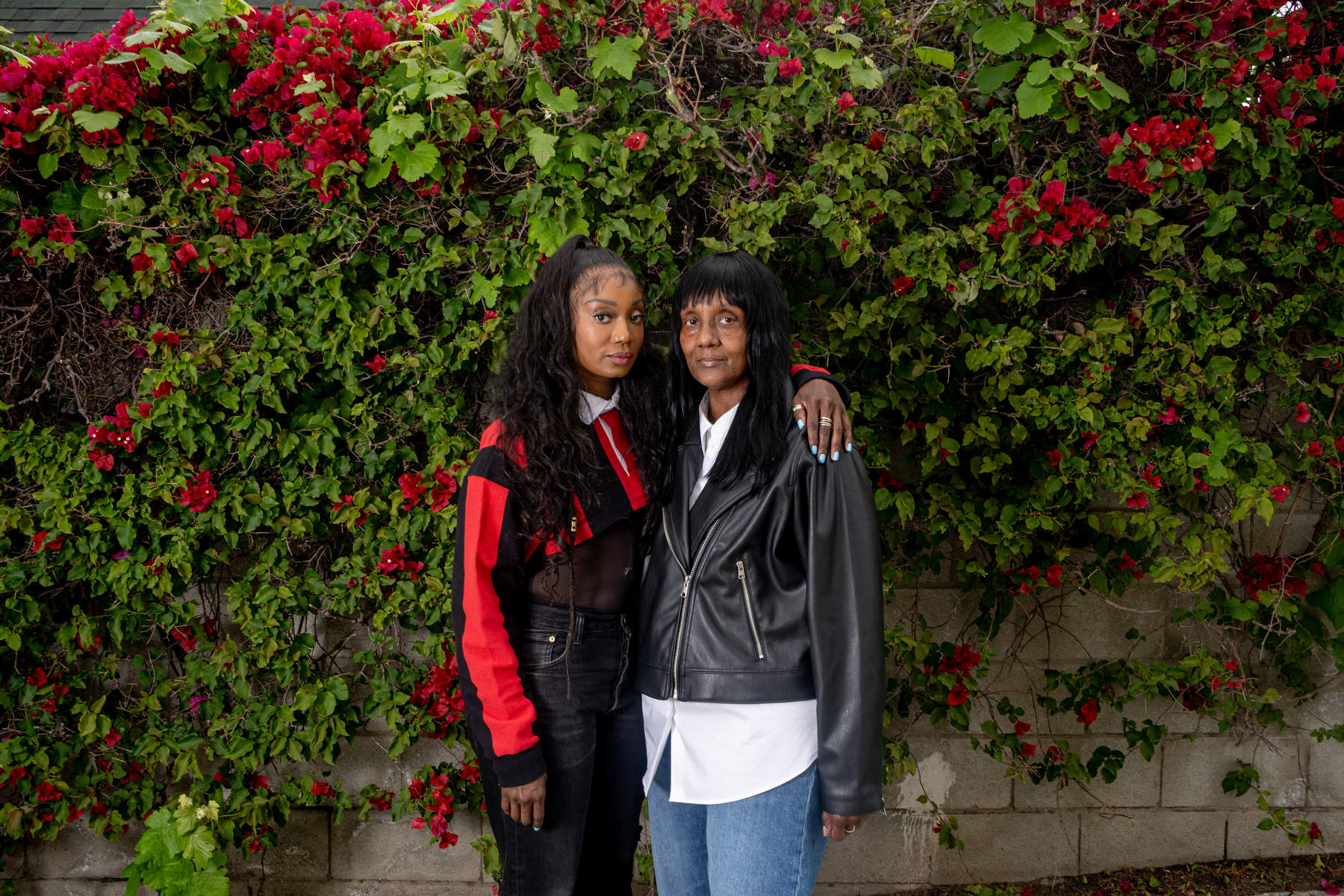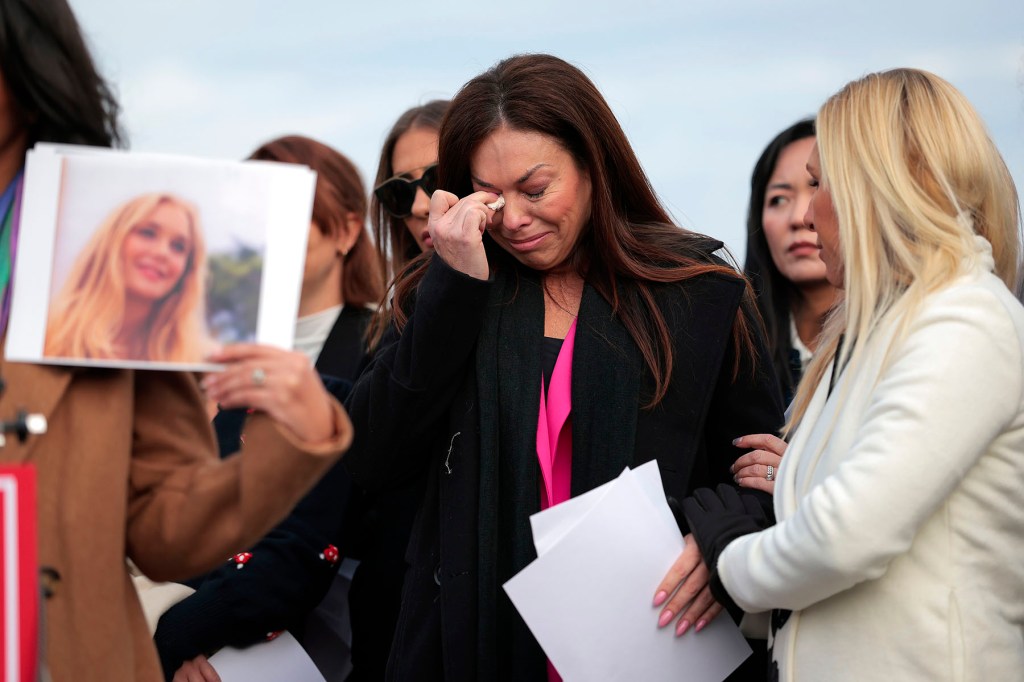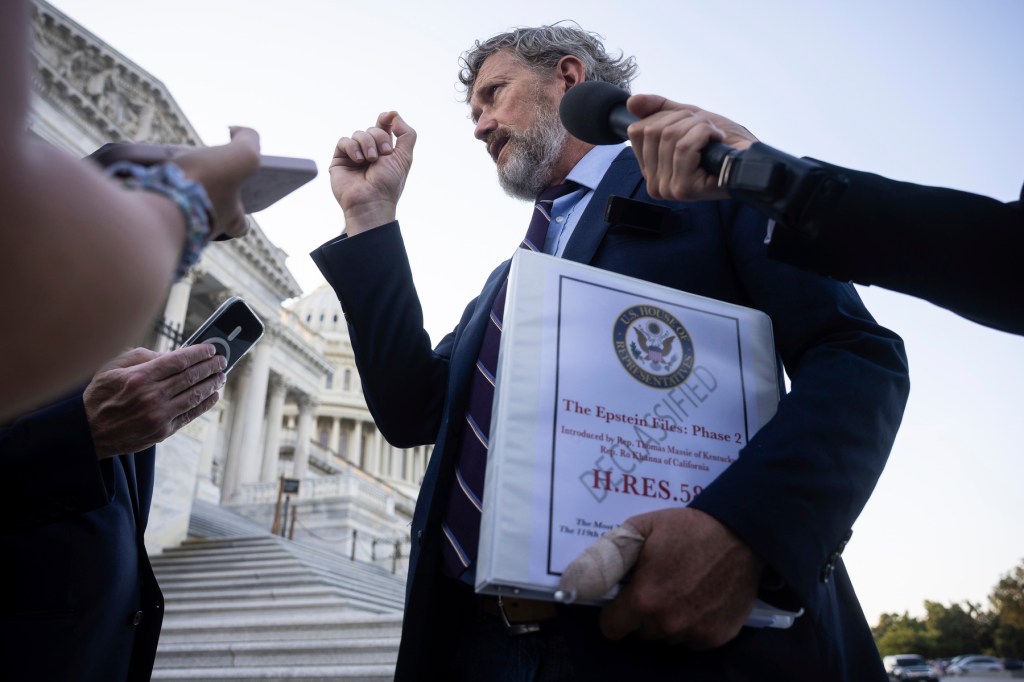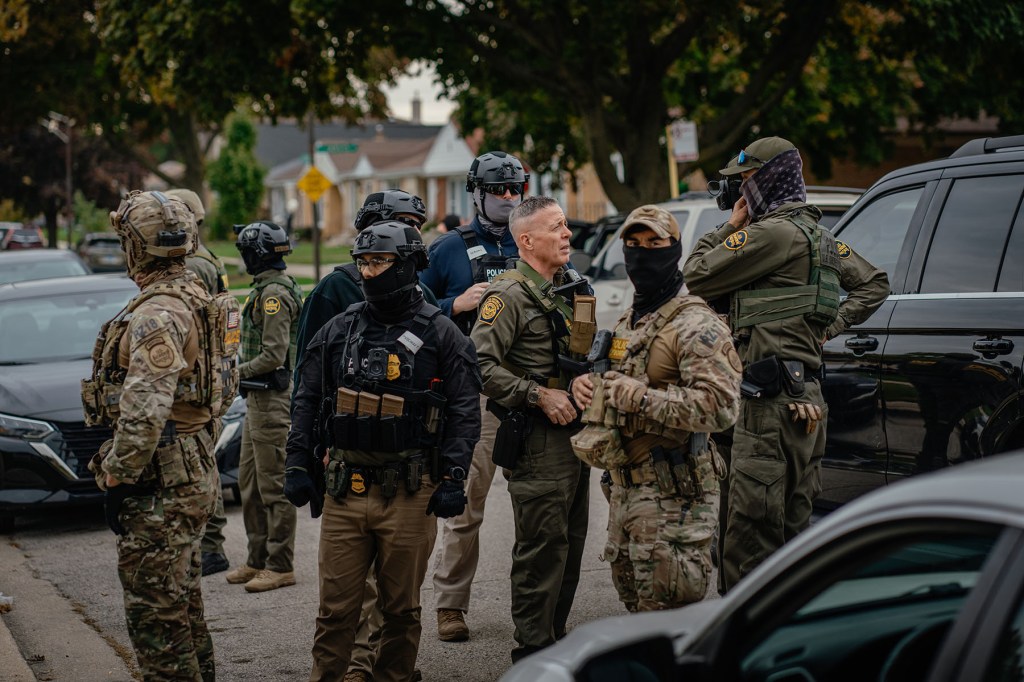This story was originally published by Outlier Media. Sign up for its newsletters.
LOS ANGELES — On February 17, Miquelle West drove herself to Los Angeles International Airport, parked her SUV and sobbed. The tears flowed in cathartic waves — a private celebration layered with grief, gratitude and long-awaited relief.
The celebrity stylist and self-described freedom fighter had packed just a few outfits for herself. Everything else in her suitcase was for her most important client yet: her mother.
“I researched and found vintage Oscar de la Renta for my mother because it needed to have a feeling of luxury. She had been deprived of luxury for so long,” Miquelle explained. “And I work in a world where luxury is the epitome, so I needed my mom to feel that.”
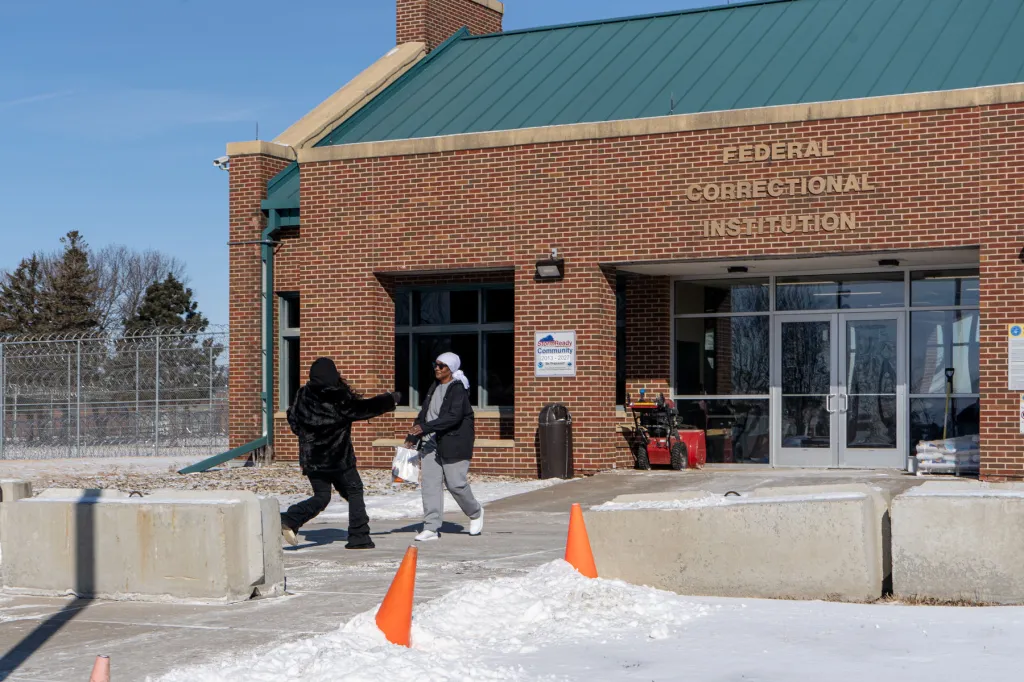
Miquelle boarded a three-hour flight to Minneapolis, where she met up with a small group of people who had traveled from across the country — each a freedom fighter in their own right. The next morning, they boarded a van headed an hour south. It wasn’t officially the coldest day of the year, but with a high of just 1 degree and a low of 19 below zero, it felt like it.
Around 8 a.m., they arrived at FCI Waseca, a low-security federal women’s prison. They waited outside in the van for three hours.
Finally, Miquelle bolted out of the vehicle — almost childlike — to her mother, Michelle West, who had just walked out of the prison. Their embrace — 31 years, 9 months and 16 days in the making — unfolded to a chorus of shouts from inside: “We love you, Michelle!”
From school drop-off to a double life sentence
Miquelle was an elementary student in May 1993, the day her mother dropped her off at school for the last time. They exchanged “I love yous” and blew kisses, like any normal school day.
But hours later, federal agents raided Michelle’s mother’s home on Detroit’s westside, tearing through it like a tornado searching for Michelle.
Convicted in 1994 for her role in a drug and fraud conspiracy, Michelle was sentenced to two life terms plus 50 years under mandatory minimum sentencing laws that have been widely criticized for their disproportionate impact on Black and Brown communities. She had no prior criminal record.
Over the next three decades, Michelle served time in three federal prisons from Connecticut to California before winding up at the fourth, Waseca.
“I feel like I paid for everything I’ve done,” Michelle said, “including my thoughts that were wrong.”
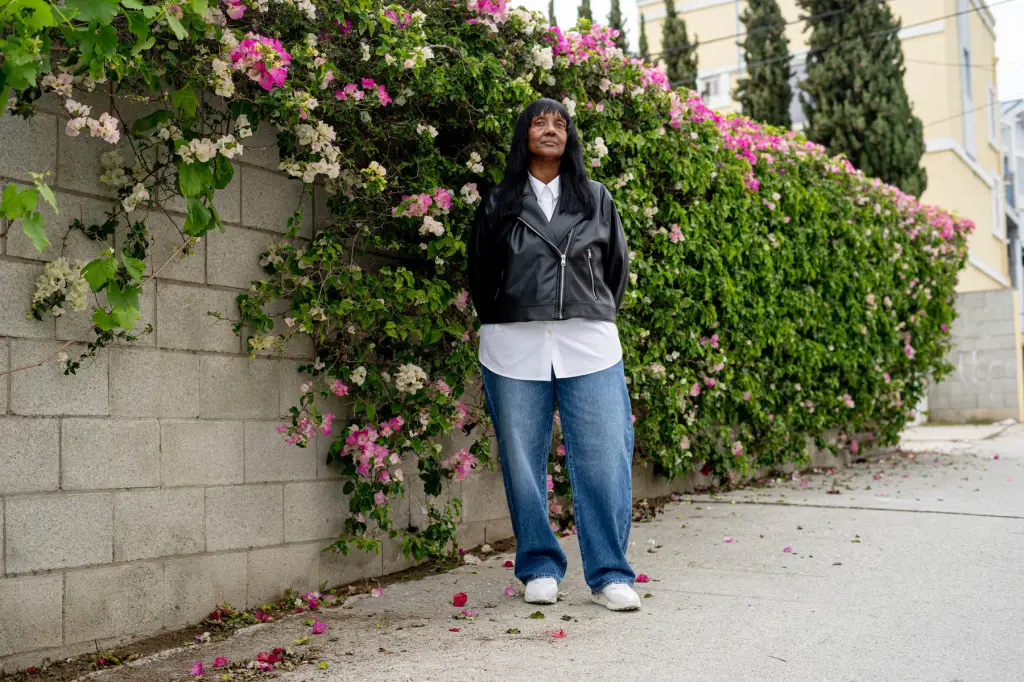
Michelle’s experience echoes a broader crisis. During the 1990s, Black women — many of them mothers — were disproportionately swept up in the “war on drugs.” Harsh sentencing laws meant many first-time offenders, often coerced by abusive intimate partners, received decades behind bars. Although federal sentencing laws have changed over the years, especially after the U.S. Supreme Court struck down mandatory sentencing guidelines, those changes did not apply retroactively to Michelle’s case.
Now in her 60s, she takes full responsibility for her choices — including turning down a plea deal she feared would put Miquelle’s safety at risk.
“I’ve always had a moral responsibility to be a mother to my daughter, regardless of where I was,” Michelle said. “Because I’ve seen children whose parents won’t even speak to them because they’re in prison, have no dealings with them. And when they get out, (the children) don’t want no dealings with them.”
Michelle and Miquelle’s bond tells a different story.
Patience, purpose and a village
Before prison, Michelle was a business owner who exposed her daughter to structure, opportunity and culture. Miquelle attended private school, worked with tutors year-round and took etiquette classes. Weekends were filled with ceramics classes, trips to the mall and museum visits.
Michelle was married to Miquelle’s father for a few years, but they later divorced. When Michelle went to prison, Miquelle’s patient, maternal grandmother and aunt stepped in. But Michelle remained deeply involved. She worked prison jobs, making mere pennies an hour, using her wages to support Miquelle’s education and help cover the cost of phone calls.
They discussed homework, ran a mother-daughter book club and exchanged pages torn from fashion magazines. Michelle created “mood boards” and talked trends over mail, email and video chats with Miquelle, who was voted “Best Dressed” her senior year of high school.
“She kept me alive,” Michelle said. “Somebody could make me angry, real angry in there, and I would just run downstairs and get on the phone and start talking to my daughter to talk myself off the ledge.”
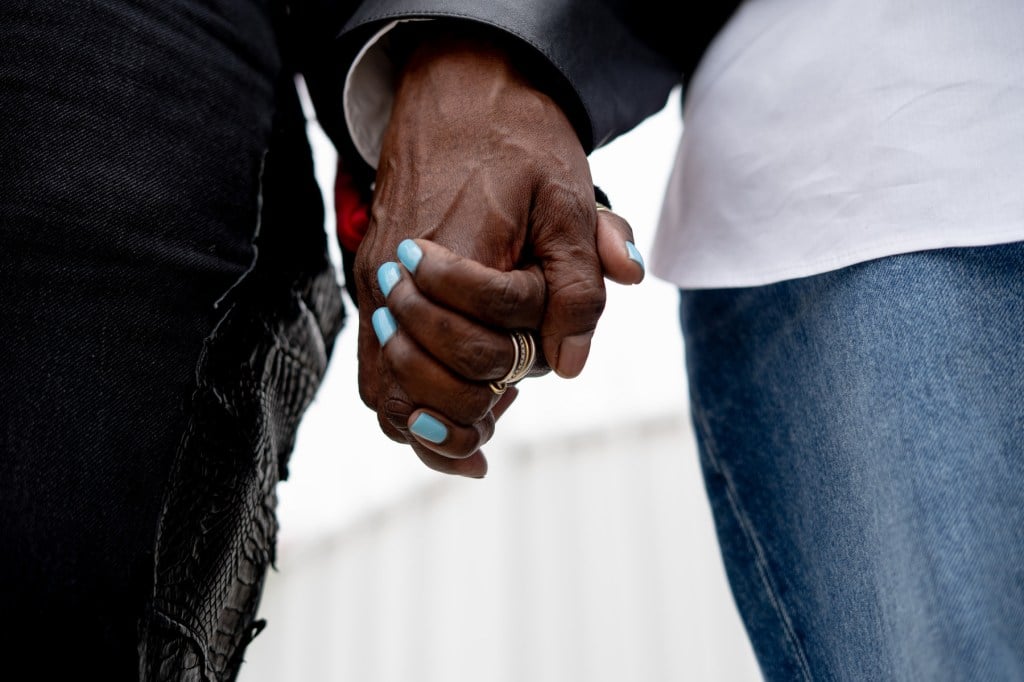
Miquelle thrived. She graduated from Southfield Christian School, worked in retail for brands like Louis Vuitton and eventually saved enough money to enroll at Parsons School of Design in New York. She interned with costume designer Patricia Field on major films like “The Devil Wears Prada” and “Sex and the City: The Movie,” and went on to assist styling celebrities including Madonna and Beyoncé.
Behind that success, Michelle was always there.
“There was a lot of mothering that my mom did for me in prison,” Miquelle said. “She taught a class [while incarcerated] on how to write résumés because she was so good at making sure she wrote mine. And every career that I’ve had, every luxury brand that I’ve worked for, it was her résumé that she built for me and put together that got me those jobs.”
Set-ups, setbacks in advocacy
If statistics had their way, Miquelle would have a criminal record, no education, or a drug habit.
“That’s the way that the system is set up,” Michelle said. “She was supposed to be, they would say, ‘a product of her environment,’ but that wasn’t her environment — because that’s not how it was. I wasn’t a product of my environment.”
Michelle’s drive was powerful, but it was Miquelle who took the lead. She channeled her skills, fashion world connections and media savvy into a full-force movement for her mother’s freedom. Clothing, rallies, panels, petitions, hashtags, letter-writing, art installations — Miquelle did it all. For her mother.

In 2016, she was featured in a documentary by the media company Revolt. Miquelle used the piece to amplify the #FreeMichelleWest campaign — which Revolt founder and music mogul Sean “Diddy” Combs helped her launch during her time as a stylist at the company.
The documentary captured a major moment: Miquelle being invited to the White House to speak about clemency during President Barack Obama’s second term. But Obama would deny Michelle’s clemency petition.
The denial “was a bit embarrassing,” Miquelle recalled. She was depressed for weeks, but she got back up because “God didn’t create my mom to die in prison.”
Michelle was also portrayed in the 2024 film “Kemba,” which tells the story of Kemba Smith Pradia — a Black woman sentenced in 1994 to more than two decades in prison for a nonviolent drug offense. Michelle and Smith Pradia were incarcerated together before President Bill Clinton commuted Smith’s sentence in 2000.
The two women supported each other and remain very close. “People’s freedom shouldn’t be dependent on if they have an organization, congressional member, celebrity or over 250,000 signatures on a petition,” Smith Pradia said.
Another relationship would be the breakthrough Michelle needed. Attorney Amanda Bashi took Miquelle’s years of advocacy and transformed it into a powerful, 148-page clemency petition.
“Michelle’s case was so layered, and her story was so nuanced that I think it is one of those cases that you needed, truly, someone who was going to dive deep, who was going to read every page of the trial transcripts, who was going to order transcripts that had never even been ordered, who was going to look at the transcripts from other people’s cases and sentencing that were related to her case,” Bashi said.
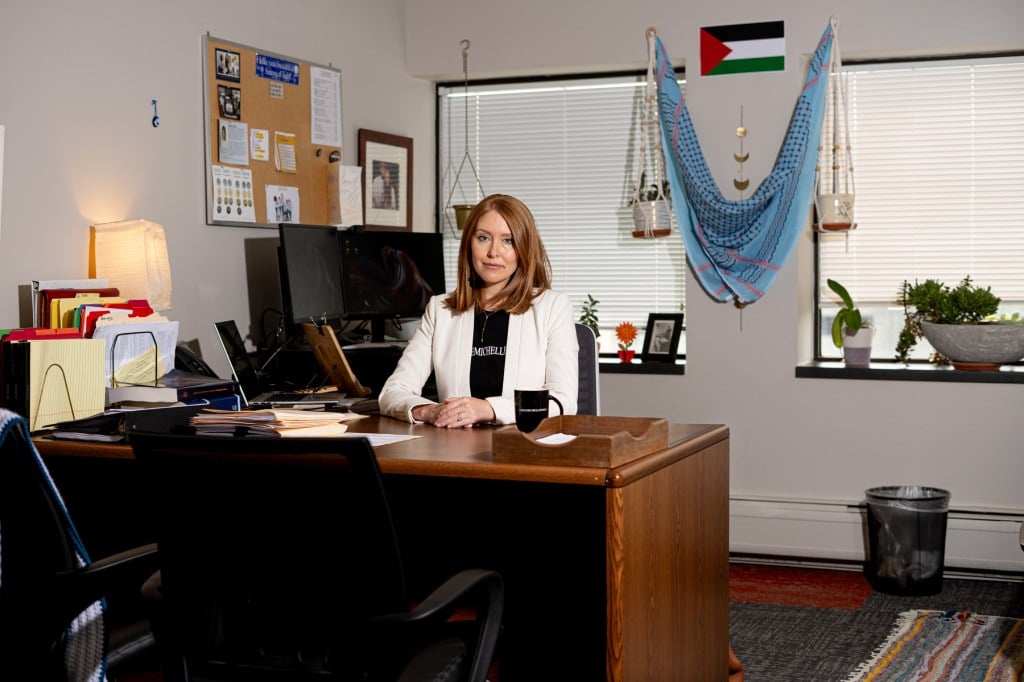
She calls post-conviction work her “pro joy” work. “I like getting people out of prison — and not just standing at the podium next to them when they’re getting sent to prison,” she said.
Bashi spent more than a year on Michelle’s petition. Still, she credits Miquelle as this story’s heroine.
“The amount of emotional, physical labor of love and time and effort and energy and telling and retelling and retelling that Miquelle has done is undoubtedly the reason that her mom’s home today,” Bashi said.
Finally, on January 19, President Joe Biden announced he was commuting Michelle’s sentence. It was one of his final acts in office. Her prison term officially ended February 18.
“My daughter didn’t deserve what happened to her because of my bad decisions. She didn’t deserve it,” Michelle said, her voice shaking and eyes welling.
“She didn’t deserve to have to go all of these years without me being present, physically present, in her life. … I see my daughter living the same lifestyle that I aspired to, and she doesn’t do anything wrong to get there.”
A bond that defied the odds
Some might say Michelle and Miquelle’s mother-daughter bond is rare because the prison system is not designed to keep families together.
Patrick S. Edwards is a licensed clinical therapist and founder of Now What Edwards Family Foundation, a nonprofit that serves families involved in the criminal legal system. He visited Michelle regularly while she was incarcerated in Connecticut. He also traveled to Waseca, Minnesota, for her release.
A formerly incarcerated father himself, Edwards said Michelle and Miquelle’s constant contact was key to Michelle’s survival and sanity.
The Federal Bureau of Prisons is “not in the business of helping families maintain family,” Edwards insisted. “That’s not their concern.”
He sees the failures everywhere: in the racial disparities among prison staff, the over-incarceration of people of color, and the prison jobs with low pay and high stress. Women’s prisons are also often in remote areas — far from home, hard to reach and isolating for mothers and their children.
There’s no federal women’s prison in Michigan. Families like Michelle and Miquelle often rely on relatives with limited means to bridge the distance. Meanwhile, incarcerated people earn just pennies per hour, while calls and visits remain expensive and logistically difficult.
“If you are in a situation where you are an everyday fixture in this child’s life, and then abruptly that is taken away, it’s going to be a considerable hardship for that child,” Edwards said, adding that family separation can trigger anxiety, depression, aggression and other mental health challenges in children.
Amanda Bashi agreed.
“It doesn’t make any of us safer or better off that these children of incarcerated parents, particularly with incarcerated mothers, don’t have access to that relationship,” Bashi reasoned.
‘The hard part is over’
After walking out of Waseca in February, Michelle hugged every person who came to welcome her home. There were tears, hugs and laughter — until prison staff told them to clear the property.
Michelle didn’t argue. She climbed into the van with her supporters and headed to the airport — in style.
“How do you style your mother being released from all of these years and being from Michigan?” Miquelle asked. “Fur. My mom had been wearing rags, and I needed to convey that now we’re moving forward … rags to riches. So we were going to match.”
The hip-length, black mink was the perfect cover-up for that retched prison sweatsuit. Michelle had grown to hate gray.
After rushed farewells at the airport, Michelle and Miquelle were off — headed to their new life together in Los Angeles.
”The hard part is over,” Miquelle said. “I know my mom. She knows me. Nothing with our relationship has changed or feels any different, other than now, we’re face to face, one on one, in the home together, hanging out, riding down the street, listening to my favorite rap songs. All of that is beautiful and what I thought of. The only part that bothers me at times is that it didn’t happen sooner.”
Now, Michelle supports Miquelle in person — running errands, meeting clients, visiting fashion studios and grabbing coffee together. They enjoy private conversations without time limits any time they want — without prison employees listening in.
Michelle is on supervised release for five years, with travel and check-in requirements. So far, those restrictions haven’t hampered her advocacy work. Recently, she spoke at a law school graduation luncheon for clemency activist Kim Kardashian. And last week, Michelle and Miquelle traveled to Philadelphia, where Michelle was the keynote speaker at a national prison reform event.
“My mom has told me so many more stories about different scenarios and different women,” Miquelle said. “So I don’t think I want to step back. I think I want to continue to mesh freedom and fashion and help other people. Maybe that’s my purpose.”
They would like to return to Detroit at some point this year — but only to visit. And if the cold greets them, they’ll be in furs.
This article first appeared on Outlier Media and is republished here under a Creative Commons Attribution-NonCommercial-NoDerivatives 4.0 International License.![]()
